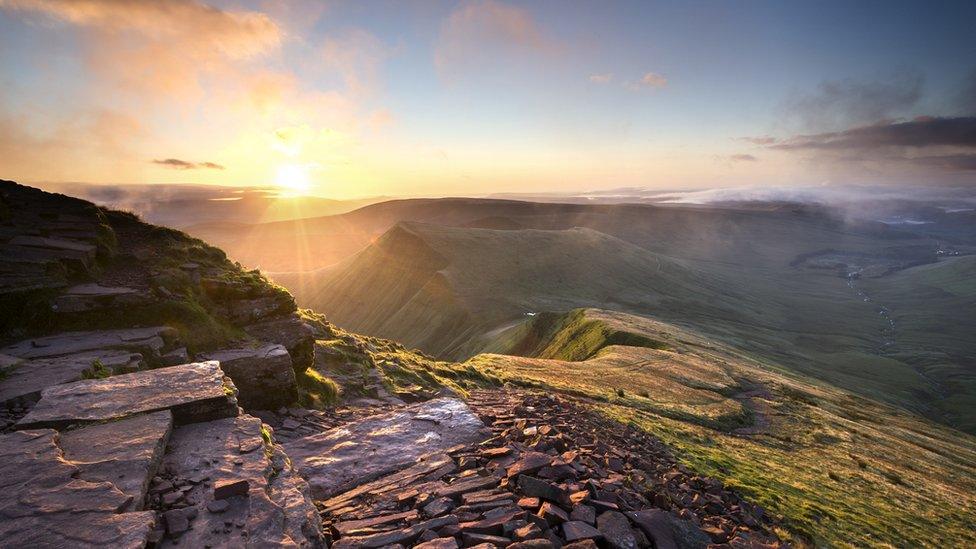Brecon Beacons: Bannau Brycheiniog rebrand shows why names matter
- Published
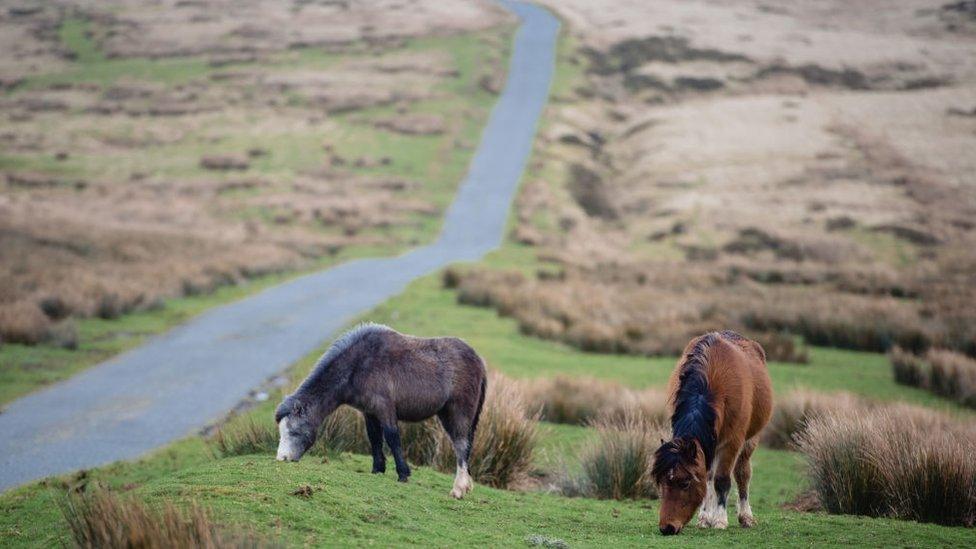
Brecon Beacons National Park will use its Welsh language name only in future - Bannau Brycheiniog National Park
Anyone who has ever experienced announcing their new baby's name to friends and family will have realised something - people care about names.
Spare a thought for Jordan Thorne, the man behind the newly rebranded Bannau Brycheiniog, previously known as the Brecon Beacons.
The public discussion around the announcement evokes memories of the Boaty McBoatface saga or singer Prince famously replacing his name with a symbol.
The change was ushered in with a rousing video starring Welsh national treasure Michael Sheen, external and welcomed by many who approve of the reclaiming of the Welsh name.
Brecon Beacons National Park will now be calling itself only by its Welsh name, Bannau Brycheiniog
But not everyone was a fan - the prime minister's spokesman said people would continue to use the English name, veteran presenter John Humphrys called it a "pointless" move and leader of the Welsh Conservatives in the Senedd Andrew RT Davies said the change undermined the already well-known tourist destination.
Monday's launch was the culmination of two years' work by Cardiff-based creative agency Creo and the response has left its creative director Jordan feeling "over the moon".
Jordan had anticipated not everyone would welcome the name Bannau Brycheiniog, which means "the peaks of Brychan's kingdom".
"We knew changing a brand a lot of people have grown up with would cause some conversation... but it's not really a name change, it's retaining that Welsh name that's always been there," he said.
"There is this cultural shift within Wales and it's an incredibly proud moment for us as a country to say that actually we are here, this is our heritage, let's celebrate it and use this as a device to educate those coming in as to what we're all about," he said.
When the agency was first approached by the then Brecon Beacons National Park it was after a simple rebrand to reflect its new management plan to reverse declines in wildlife species across the park by 2030, and reach net-zero carbon emissions by 2035.
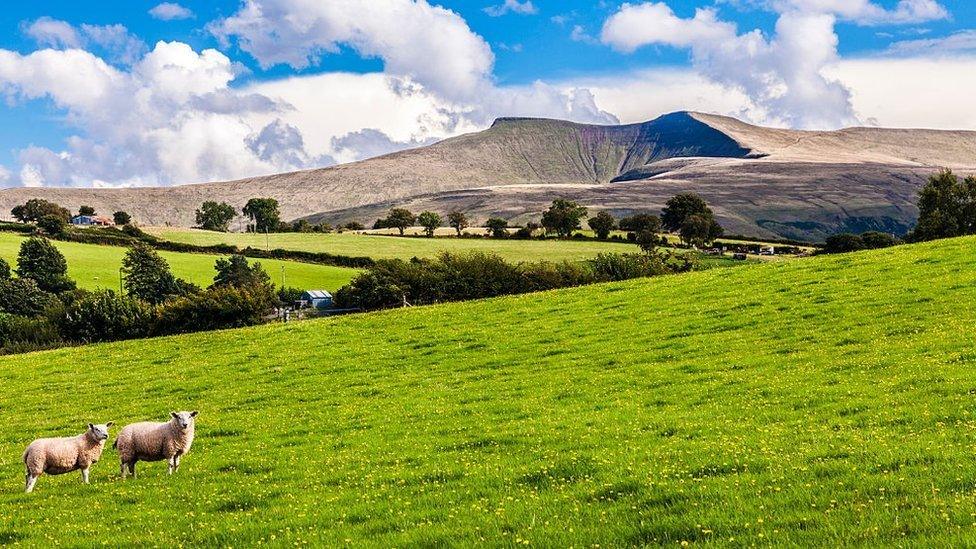
The national park covers approximately 520 sq miles of south and mid Wales
But Jordan said the project snowballed once the six-month consultation with those who live, work and volunteer at the park began.
"They all started to say that the current brand was almost becoming a bit too dated for them and wasn't really representative of what they were now," he said.
He said despite some accusations to the contrary the dropping of the old name was never political.
"It was never a political decision to drop the English and there was never any anti-English sort of connotation to it whatsoever," he said.
"It's something that has been in the brand from the very beginning and we just decided to embrace that and be part of this cultural movement within Wales as a whole."
In the past few days Jordan defended the rebrand on Twitter after some users said there had not been enough consultation.
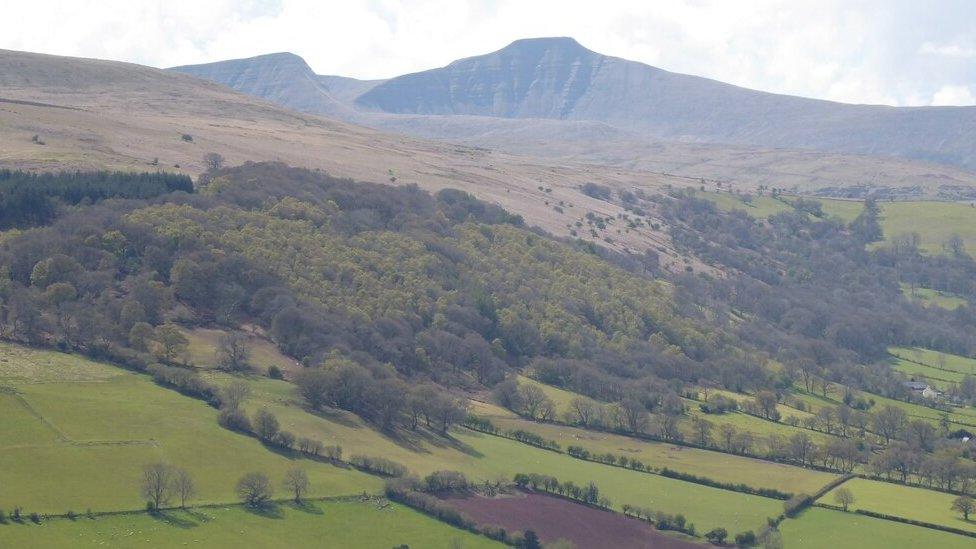
The national park includes parts of Powys, Carmarthenshire, Monmouthshire, Rhondda Cynon Taf and Merthyr Tydfil
"What I didn't want to happen was that people would feel that the park just decided to do this because a consultancy firm went in and told them to. This was naturally an evolution from workshops and discussions," he said.
Jordan said his company had been approached by the park following its work with Eryri National Park, previously known as Snowdonia, which decided the area should be referred to by its Welsh name in November.
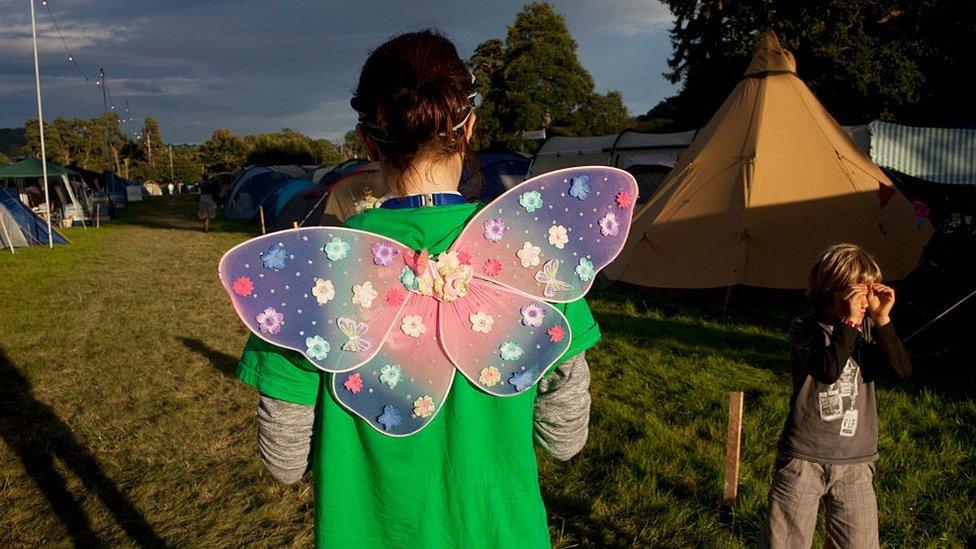
Bannau Brycheiniog National Park is home to the Green Man Festival
He said a few years back while working on its website they were privy to conversations about a potential name change.
He said this experience then helped with the Bannau Brycheiniog rebrand.
But will people adopt the reclaimed Welsh name?
Richard Edwards runs The Courthouse guest house in Eryri. When asked if visitors or locals use the Welsh name he said: "Never, I've never heard anybody use it."
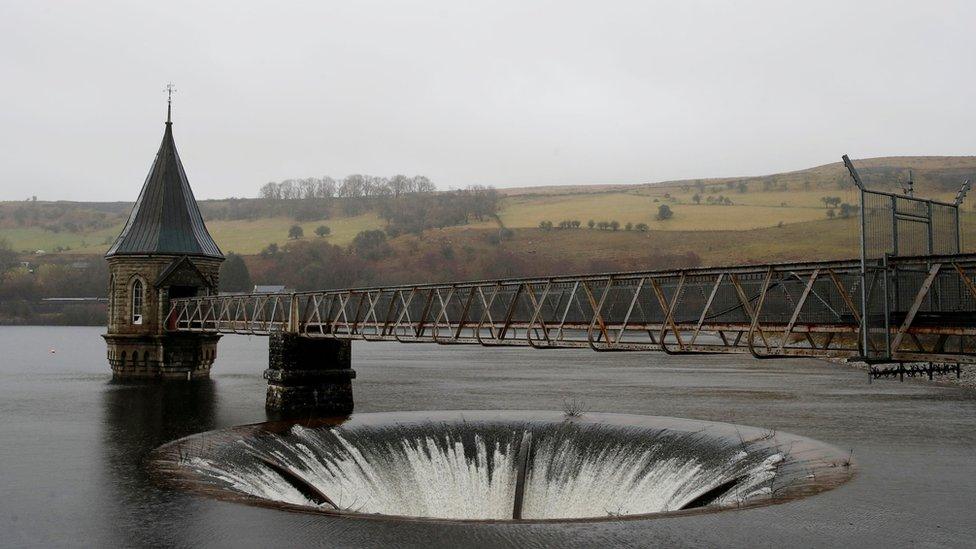
The Bannau Brycheiniog national park is home to Pontsticill Reservoir
"I don't speak Welsh, obviously Welsh people speaking in their own language will use it but we've never heard it from guests or our colleagues who run guest houses," he said.
He said of most visitors: "They use Snowdonia as a general term for the area but they also misuse it as the name of the mountain."
When the park announced it would be known as Eryri it also announced that Snowdon, the mountain, would be known as Yr Wyddfa.
Asked if he thought people would use the Welsh name, Jordan said: "We don't envisage people starting to suddenly drop [Brecon Beacons] and say Bannau Brycheiniog, I do see it as more of a generational change."
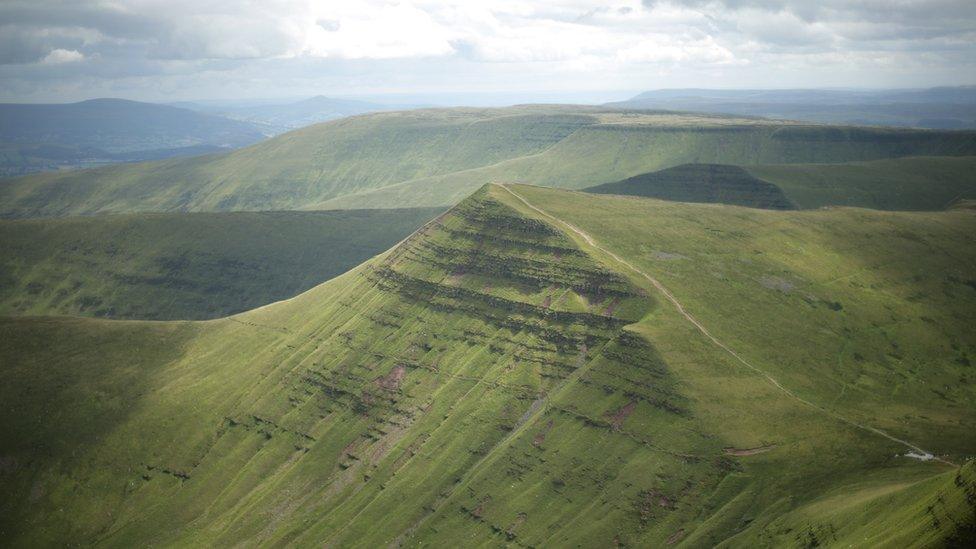
Bannau Brycheiniog means "the peaks of Brychan's kingdom"
He said he hoped it would "slowly drip feed into the next generation coming through as they become a little bit proud of their Welsh heritage".
But why do people feel so strongly about names?
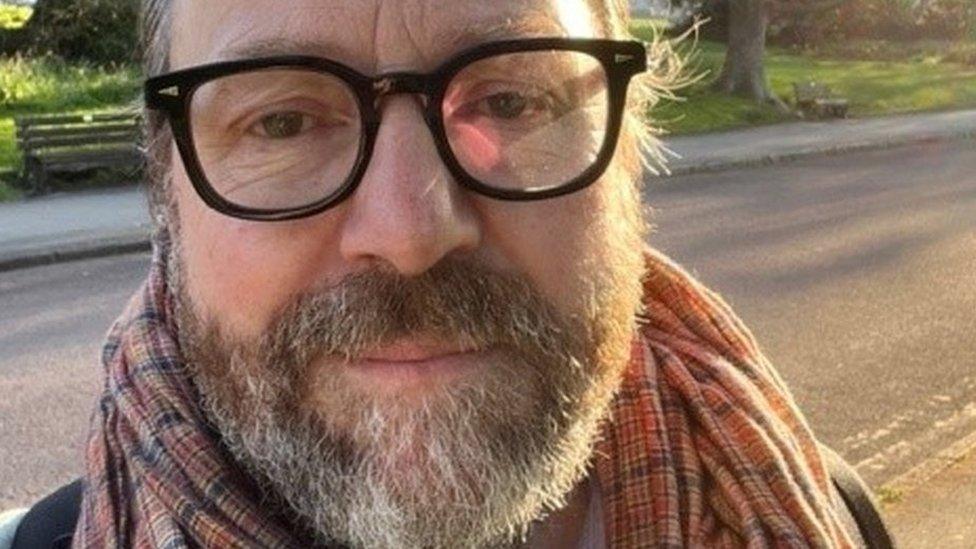
Brand writer Ed Prichard believes the rebrand 'comes from the heart'
London-based brand writer Ed Prichard, who makes his living coming up with names for businesses and organisations, said renaming things could be particularly difficult.
"People get very comfortable with things, they don't like change," he said.
"With something as big as this people find it quite upsetting, a bit disconcerting because they're used to a certain way of referring to something.
"There's that old saying 'the only one who likes changes is a wet baby'."
He recalled the "big fuss" when Marathon bars were renamed Snickers.
"But everybody is quite happy with Snickers these days, nobody even thinks about it, it just takes time," he said.
Ed is a fan of the Bannau Brycheiniog rebrand.
Referring to the video with Michael Sheen, he said: "I like the way he referred to it as 'an old name for a new way of being'... that made a lot of sense.
"I think it comes from the heart - it's not like it's a made-up name which has nothing to do with the area.
"I think it'll have the impact the park is looking for."
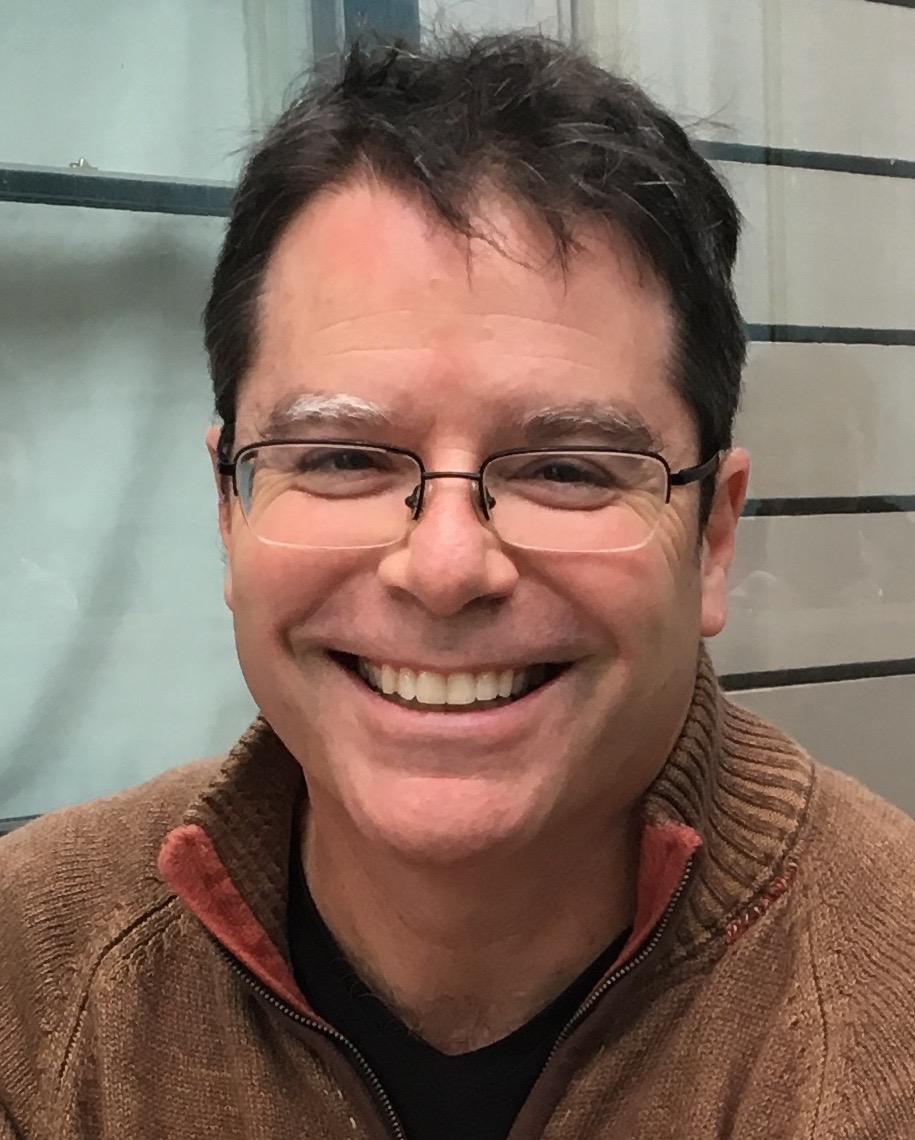
California-based Anthony Shore supports certain places in the US reverting to their native American names
California-based Anthony Shore also makes a living naming companies and products.
He is excited by what he has seen in Wales and wants more places to follow suit.
"I believe that there is a sense of liberation and independence that comes when a country readopts a name born out of their own native language rather than some other country's native tongue," he said.
"We've seen this happen throughout history with countries and cities - we have Bombay becoming Mumbai, Peking becoming Beijing, Siam becoming Thailand, Burma to Myanmar and so on and so forth.
"As an American it brings up the question as to how American our own place names should be - should we start converting all place names to the names of the native Indian tribes who were here before America was colonised and I think that's a reasonable question."
When asked how easy to remember or pronounce Bannau Brycheiniog was for people outside Wales, he said: "Whether it's easy for other people to pronounce or remember is not necessarily the problem of the native speakers of that language.
"Really it is a responsibility that is adopted by foreigners in order to learn how to pronounce that name.
"Initially people may struggle with it but they'll get used to it. They'll figure it out, and they'll move on."
- Published17 April 2023
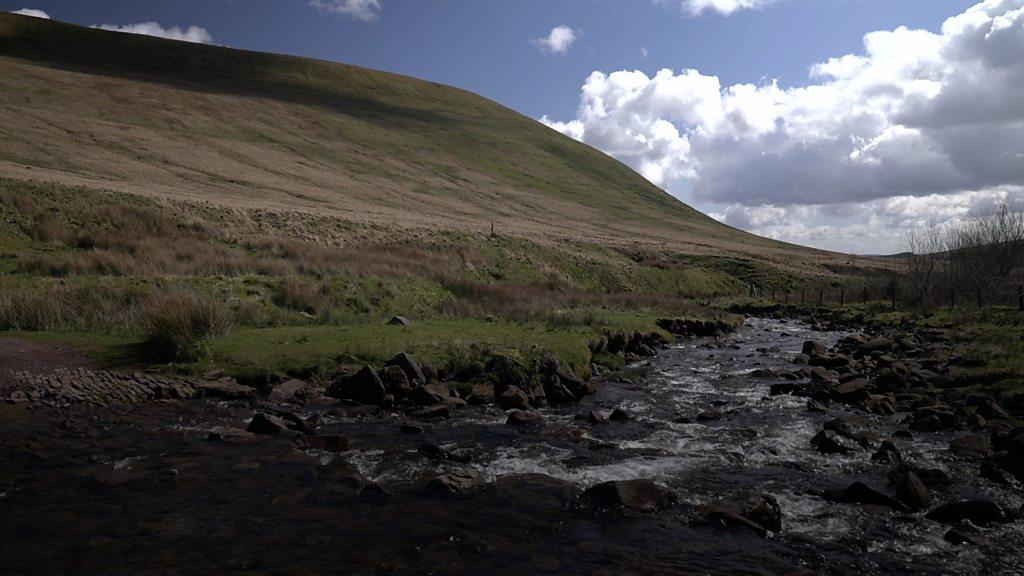
- Published18 April 2023
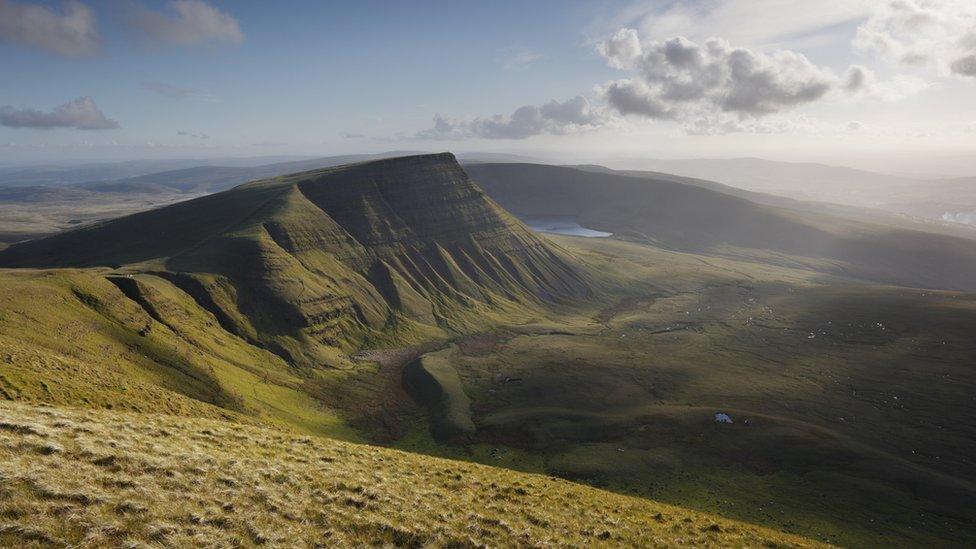
- Published16 November 2022
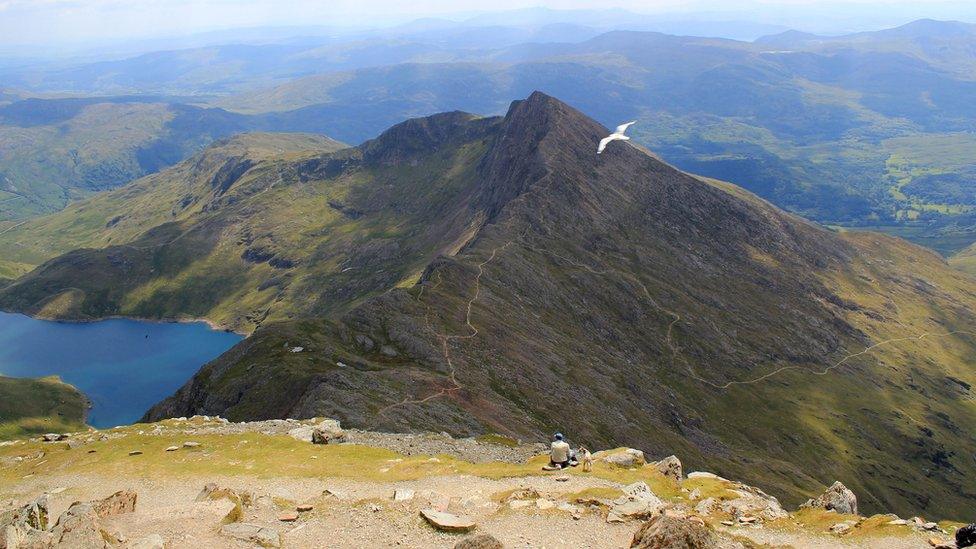
- Published17 April 2023
